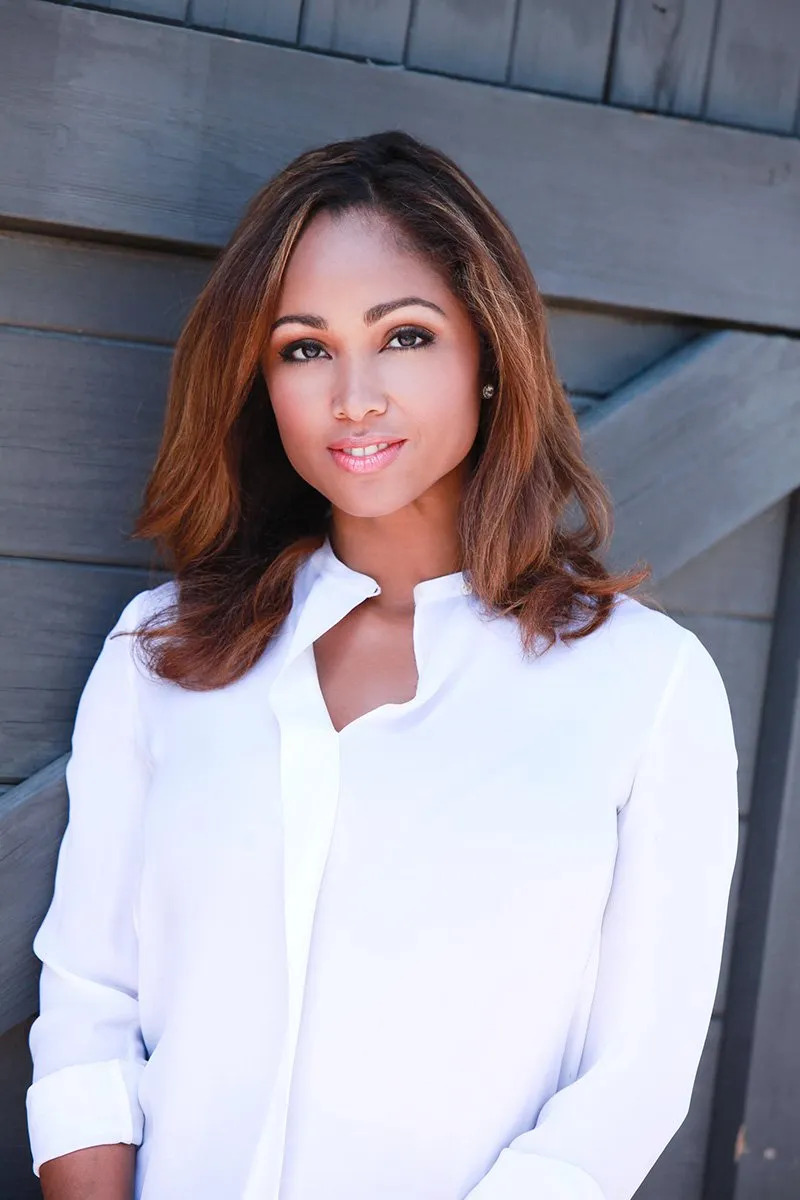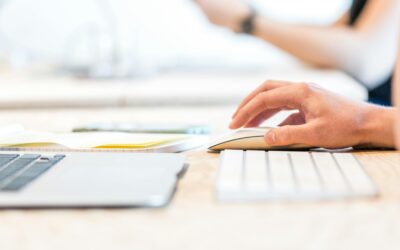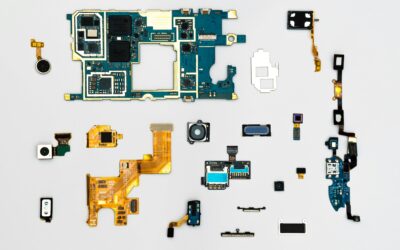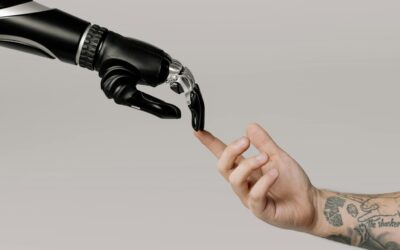Impact Investing with Tanaha Hairston
Have you ever thought about how you’re voting with your dollars? Tanaha Hairston talks about impact investing and how it works!
Listen to us On
About the Episode
We focused on impact investing, making investing more accessible to women and first-time investors, the power you can have when paying attention to your spending and investing, and how to get started, with Tanaha Hairston, Founder of RISE the Movement.
Listen to hear a difference-making tip on the power and impact of voting with your dollars!
You can learn more about Tanaha at RiseTheMovement.com, Facebook, Instagram, and LinkedIn.
Did you get anything out of this episode? Do us a solid and leave a review:
https://ratethispodcast.com/alignedmoneyshow
Learn more and engage at MoneyAlignmentAcademy.com, Twitter, LinkedIn, Instagram, YouTube and Facebook.
Buy George G a coffee (he loves coffee)
https://www.buymeacoffee.com/lifeblood
Have George G speak
https://moneyalignmentacademy.com/speaking/
Financial literacy and wellness for individuals, families, and companies
https://moneyalignmentacademy.com/
Find George G’s books here
The Aligned Money Show is the podcast for Money Alignment Academy, copyright 2024.

George Grombacher
Host

Tanaha Hairston
Guest
Episode Transcript
george grombacher 0:01
Tanaya, to get us started, give me two truths and a lie, please.
Tanaha Hairston 0:06
Okay, two truths. Number one, I have invested in a building that provides affordable rents. One Truth. Second truth is, I am a computer science undergrad, and a lie is I invest in oil and gas opportunities.
george grombacher 0:35
Well, if you tell me what they are, I’m supposed to guess i
I am supposed to guess which one the lie is. You don’t just need to tell me two truths and a lie today. Let’s, let’s, let’s, let’s. So I got that one, let’s, let’s, let’s stop doing the investing stuff. Let’s do personal stuff. Give me two truths and a lie about you personally.
Tanaha Hairston 1:04
Okay, um, that’s so funny. I’m sorry. I just want to laugh, because that is funny.
george grombacher 1:13
We’re off to a good start, for sure.
Tanaha Hairston 1:16
Yeah, I do. I just want to laugh. Okay, so I have lived in over eight states, okay, um, and I have a, I have a child that is going to is a baseball commit and going to college. And I, um, love to eat um Indian food. Ah,
george grombacher 1:51
okay, now we’re getting somewhere. You lived in eight states, you’ve got a child going off to college for baseball, and you’ve lived or and you love to eat Indian food, okay? Well, I do not doubt that you’ve lived in a lot of different places, and I also do not doubt that you’ve got a child who’s an excellent baseball player. So I’m going to say that the lie is the Indian food. You did it. Yes, I got it awesome.
Tanaha Hairston 2:15
You did it amazing. All
george grombacher 2:18
right, so you don’t like Indian food, What? What? What is your favorite food? Maybe we’ll do that.
Tanaha Hairston 2:24
Oh, okay, so I love seafood. So I love, like, the Asian Japanese food, the seafood sushi variety. I try to, I try to eat really, kind of more healthy, right? Unless the sweets are baked and it’s in the wintertime and they’re baked from scratch. That’s the cat like, who can say no to just hot, baked freshness out of the oven in the winter when it’s cold? No one, not me, and I’m
george grombacher 2:50
not interested in anybody that would want to do that. So awesome. All right, just not Indian food. So totally good.
Tanaha Hairston 2:56
I don’t really like it. No, that’s okay.
george grombacher 3:00
That’s okay. We don’t need to like everything today. We have our preferences. So well, what is what is top of mind for you right now?
Tanaha Hairston 3:10
Oh, well, since you guessed my truth, it is preparing. I’ve got my very first my son is going to college, so we are actually moving him in, into his dorm. So that’s top of mind for me, of course, yeah. And then number two, that’s professionally, really, to be frank, top of mind. So I’ve got him going to college. I’ve got another who’s a senior in high school, she wants to get committed.
So that’s I’m
trying to think of what else I could say. Those are the best things I would say.
george grombacher 3:53
I think that that’s awesome, cool. And I know that you are are creating community and space. So tell me a little bit about your work with rise the movement.
Tanaha Hairston 4:07
Well, my work with rise the movement is really all about connecting women with impact based opportunities that make the world better. So we look at private opportunities across businesses, we look at private opportunities across funds. We look at private opportunities across real estate, right? So if we have savings, right? We invest maybe about this amount in public markets, but then all the rest of those things are private things, and so we connect to women with private opportunities to participate in. We share with them and connect them with values aligned planners, right? We do make connections. That’s really what we do. We funk, we function as a top of the line ecosystem to where we connect women with either advisors or private opportunities so they can invest
george grombacher 4:51
awesome. And you were looking around a couple of years ago, and obviously you noticed that there was some problem or a gap in the market. Market or something that didn’t exist, and you are filling it.
Tanaha Hairston 5:05
Yes, I’m totally I’m filling it because so 13 years ago, I was the managing director of a private investing group, and only men came, and then the men invited other men, right? And I really wanted to share these opportunities with women. Then secondly, I wanted women to understand all the areas, to participate, and then I wanted to align with others who were just as passionate about education of women that I was, so that, that way we could make connections, so they can grow what they have and also understand it and be educated at the same time. So we are, we really function as this ecosystem to where we connect with values aligned and connect with private so that’s what. So that’s what rise is kind of we’re an ecosystem.
george grombacher 5:55
Nice. What is it? What is it that was missing? Is it just that women were not feeling comfortable going into spaces where there weren’t other women? Was this a lack of interest? Is it a lot of different factors?
Tanaha Hairston 6:16
Um, so I will say that that’s why I call it a movement, because it’s a mindset for women, right? It’s a mindset for them to understand all of these different opportunities to participate in and where they can also make an impact. It’s it’s a mindset, so that’s why it’s called a movement, right? And it’s also the onus of, here’s all the things you can do, and here’s all the ways, meaning, here’s all the different ways that you can grow money, and here’s all the way, here’s all the ways you can grow money, and then here all the ways to make it impact, and then here all the ways that you can make it impact at the same time.
george grombacher 6:57
So it is, I appreciate that it is a movement, and I think that that’s a great way to describe it, because it’s a big world. The world of investing is enormous and confusing, and there’s so many opportunities through impact investing that I don’t think that people realize. And so I’m sure that once you are able to connect people with the resources to, for lack of a better term, empower them to be able to educate and make decisions, and then realize, wow, I can actually sort of vote with my dollars and my investments. It’s pretty, pretty powerful combination. Yeah.
Tanaha Hairston 7:33
So we do a couple things. A we do this virtual community right where we meet monthly, and we look at like opportunities. So we will look at businesses like one of the businesses that we brought in, right? A woman takes 80% food waste and turns us into beautiful leathers, right? We had a lot of women interested in that. One we look at real estate opportunities that do like affordable rents. Another woman, she’s actually based in Arizona, but they buy, like a tranche of trailer homes, and then they do financial education for the entire community. Next month, we’re bringing a water and sanitation fund where we get 11% IRR, and then those women are paying micro loans back at a 99% success rate. Um, so there are things like that. And then we have a back end community, um, to where you can kind of see this whole ecosystem like public opportunities, you know, that are like, think ETFs that also are thematic, focus on things like clean energy, because that’s what we do. We ask them to check the box, like of the UN Sustainable Development Goals, like, what do you care about? Is it clean energy? Is it water and sanitation? Is it infrastructure, right? Is it, you know, gender equality. And then we map opportunities with what is cared about, and then we make the connections.
george grombacher 8:48
That’s such a powerful thing, I think. And this is something I’ve certainly experienced, is a frustration with looking at massive issues going on in the world, and maybe the way that I think about one of our big cultural issues, let’s just, let’s just say, say abortion. Let’s say that I am a, I’m an advocate for women’s rights to be able to make that choice, and I perceive that the government is making laws that goes against that frustrating. But then you come to the realization that I can actually make investments that will make whatever I’m interested in advance that cause. So it’s a way to, again, sort of vote without actually going to the ballot box through investment. Yeah,
Tanaha Hairston 9:30
I don’t think we realize right, that when we make and it starts fundamentally right, because I teach, you know, like you can teach teens this or young adults, right? When, even when we buy things, we’re making a vote, because if capitalism is when you purchase things, that’s really how you allow a company to grow, and it starts, everyone can be impactful, and can start at a fundamental level with what we buy, right? So we can buy from companies that maybe have mixed leadership if gender equality is. Important to us. We can buy for good work from companies that have good working conditions, right? We can make a vote with our dollars, and they can start so fundamentally with purchase decisions with our banks, like where we put our money in. So you don’t always have, yes, we do share private opportunities, but you can just every step counts, like, because our banks are investing our money, right? So you can, you can look and see, how are the banks investing this capital that I’m putting into this bank, right? And then you can take a step further and think, Okay, I want to support public opportunities, right? So then what, what are those? And how can I invest? And then if you have more savings, right, then you can do private so really, at almost every level, we can think about how we want to affect change and the impact and the companies we want to support. It can start so fundamentally. It doesn’t have to be in a in a big way, even though that’s what we share. But we can all be impactful in our with our capital, in the money that we actually do have. Yeah,
george grombacher 10:59
yeah. Yeah. I think it’s, it is so unfortunately overlooked because it’s, it’s really important to go vote. There’s no two ways about that and to become politically active. And how you allocate your dollars plays a massive role in your community and everything that you’ve been describing. So I think that that’s great. Who, who who is a good fit? Is it? Is it women that are already investors? Or are you interested in reaching out to women that haven’t gotten there become investors yet?
Tanaha Hairston 11:30
Yeah, and that’s a that’s a good way to say, I love, I love what you just said, because it really starts with education, and that’s what we do? We do we give education and community, right? And it’s so important for this movement not to be like, bias, like, I’m not trying to push a particular product. I’m not trying to push a particular product, right? It’s so important for us not to be biased, because if we focus on the education, like, educating, like, okay, you know, how do you pick, you know, these public opportunities, right? And then let us connect you with somebody that can help you. So that way we’re not trying to push you down that path. How do you, you know, kind of understand, if it’s your first business investment that’s private, how do you understand what that is? What are your expectations, right? And so it’s important for us to hold your hand and walk alongside you. You know, throughout the whole process, that’s so important. So, yes, right? The easiest are, obviously, if women already consider themselves investors in the community, are women, yes, with savings. We do tend to be a little older, right? I would say mid to late 30s on up to early 60s. Um, so women with savings, women, business owners. And then, because we do passive income opportunities, right? And they like the tax opportunities of investment, so we’ll funnel those in as well. And then women in finance, right? That’s, that’s the third part, obviously, that are in in the organization and community where we share, where we share things, but, yeah, we like to educate, because otherwise, right? I’m only going to want you to invest in what we have. And I love the emphasis behind, like, let’s be agnostic. Let’s just, you know, focus on the change we want. Let’s move money into the changes that we want to see, right? So it means things like investing in, maybe we invest, we invest in, like, affordable, you know, communities in real estate with passive in common. You know, you can do some with beautiful, double digit private IRR, instead of maybe investing in, you know, prison systems, that would be me personally, right? Everybody’s different. Doesn’t matter. Whatever you whatever you want to invest in. It’s okay, you know. But you could right if you wanted to right, or you could invest in clean energy and maybe divest from oil and gas, right? You could. It’s okay, whatever you do. It doesn’t matter, right? We’re all individuals, and we can make up our mind as to what we want to participate in. It’s okay, right? But you could. So that’s what we share. You know? I think
george grombacher 14:01
that that’s great. That makes sense. Yeah? For sure. For sure. You know, I’m fine of saying I’m not interested in putting my values in anybody else. What I want is for you to decide what your values are and for you to exercise them yourself. So, yeah, yeah, that’s
Tanaha Hairston 14:15
exactly. That’s exactly, yeah. So we ask, like, what change do you want to see? And then let’s just, let’s align some things that support that, right? So, and it’s okay, whatever the whatever those are, you know, it’s okay unless
george grombacher 14:30
it’s Indian food tanaya, and we’re not interested. Yeah, get out of here. Alright.
Tanaha Hairston 14:36
I don’t know if I’m going to find Indian product line.
george grombacher 14:41
Never say never. But at this point, at this point, maybe not, what have been some of the big surprises? Or, as you’ve obviously, you have an idea of how this program is going to work out, like it’s going to be awesome. It’s going to this is what it’s going to look like. And then, you know, it goes out in the world, and it sort of takes on a life of its own. Yeah. Uh,
Tanaha Hairston 15:01
with rise. So the way rise works is that a we meet, we meet monthly, virtually, right? Anyway, second Tuesday of the month, we meet, and then we put together two different investment opportunities. We do that ongoing, and then we do Yearly Meetings. So we will do a yearly meeting of a sustainable manufacturer, right? That that one company we’re going to, she’s going to help us do a sustainable manufacturing tour. And that just happens to be in Italy, you know, we’ll do a sustainable agriculture tour of, you know, of a property that is growing agriculture sustainably. So it just has to be impact focused. So we do meet in person, but the their impact themes, if that makes sense. And then outside of that, we have a digital platform, right? So the impact investing community, we have a we have a complete digital platform where you can kind of come in and look and then chat about these things, where we just share, here’s, here’s like, the ecosystem of all the things you can participate in. And then here’s how it works, and then that’s what we have. And then ongoing, right? It’s really about having a movement to where you know, if you want to use your savings towards impact, then we want to connect you with, you know, individuals that will educate you to do so, as well as the opportunities that you can participate in. If that’s how you want to spend your time on the earth, that’s it
george grombacher 16:23
wonderful, and has it gone exactly like you expected? Or have some things worked better, or some things not worked?
Tanaha Hairston 16:34
Yeah, um, I will tell you when I first started, right? Um, what I did anticipate is, you know, I thought it was kind of targeting, kind of in the bell curve, right? You know, that group that I told you about, but then what I didn’t expect, because we have these outliers, George and they, they just want to learn. They’re just like, we just want to learn like we don’t really necessarily have any so it’s been interesting. That’s why we really kind of did the platform instead of just the Virtual Media, because we had ones that are just like, I just want to learn. I just, I just want to know, right? So that’s the part that I didn’t anticipate. So we just, we’re just really hyper focused on the empowerment. Here’s like, here’s why you would invest in, you know, sustainable our we’ll do a media piece on that, you know, web master class on that, you know, and then we’ll invite sustainable agriculture funds to come in, right, just because right, we can’t, you know, our soil is 70% of it is, we can’t continue these farming practices. I’m not going to go down that route on this call, but, I mean, I could literally talk on each and every single one of these things that we like to aggregate and share, that if we if they have the support. And again, it’s not philanthropy, because, like, we’re really talking about, okay, here’s how we expect our money to grow based off of historical track records, right? So this is not just blindly giving. It’s like an expectation off of a business plan where we can accurately measure, right? Like, here’s the number of, you know, carbon, you know, reduction, here’s the number of, you know, you know, water, you know, recycling, here’s the number of affordable rents, here’s the number, right? I mean, h1 you can kind of just go down and establish some quantitative metrics, especially with private right? It’s really clear what the private opportunities are from an impact quantitative metric, right? You can say 80% of the rents will be capped, and they will be for teachers and military and affordable, right? Stuff like that is more quantitative, as opposed to large companies is kind of fitting ESG into the strategy. You know, it’s like, these smaller, the the private companies are built from quantitative in mind. So no, it’s gone well because we folk, we we, we’re sharing, right? It’s a community, and it’s and it’s like, oh, I didn’t know that. So that’s why the it’s gone well, because there’s a curiousness around, like, why was in the share with me? And I was like, I know. I you know. Like you, we all should know. So
george grombacher 19:08
that’s what you’re doing now. So, yeah, I think it’s great. It certainly makes sense that you would want to attract people into the into the community, that have the means and the ability to make investments, but then also to be attracting people into the community that will one day be able to make those investments, but they’re in the stage of wanting to educate themselves, and to be in a position when they’re ready, then they’ll know. So I think that that’s awesome,
Tanaha Hairston 19:35
yeah, yeah, yeah. And it really is. I mean, we can all think about it, you know, we all have things that we care about. We all do, and we all have things that, you know, we may want to change about the world. Sometimes we just don’t know about the best way to do that. Well, maybe not everybody, but I would say a lot of us have things. We’d like to alter if we could, yeah,
george grombacher 20:02
yeah. And once I know that, yeah, I actually have the ability to do that, it is a pretty cool thing. So I appreciate what you’re working on and what you’re doing,
Tanaha Hairston 20:12
and I love the work you’re doing. I mean, I love that you’re creating this podcast for financial education. I love that, right? Because, remember, I don’t know in our day, well, I don’t know, but, you know, like, money wasn’t really talked about. I’m so lucky that I had a dad and parents, you know, my that would play like the cash flow game with me, you know, even being corporate, but it wasn’t really talked about. And now there’s this slow shift. So I’m really, I love the work that you’re doing here as well. So because it’s, it’s making it so it’s not like about that, you know, because we should, you know,
george grombacher 20:52
totally, thank you for sure. Well, it’s, it’s, it’s been a pleasure and continues to be. And the more you can help somebody identify as an investor. It’s one of the worst things I that I hear from people is when I get in front of people and they say, oh, you know what, I’m just not very good at money. And it just makes me sad, and it’s I think, Well, I’m glad that you’re here, because we’re going to change all of that today, so it’s available to everybody, and we need opportunities like rise and people like you to to make them more accessible. So I appreciate it.
Tanaha Hairston 21:28
Yeah, I love that, George, I love that. Thank you. Well
george grombacher 21:31
tonight, we’re ready for your difference making tip. What do you have for us?
Tanaha Hairston 21:36
Okay, yeah, again. Do you want personal? Do you give me some what do you what would you like
george grombacher 21:45
give me give me the give me a professional one first.
Tanaha Hairston 21:50
Okay, alright. So what difference? NATO, okay, ask me the question so I know exactly how you want me to answer it.
george grombacher 21:58
Um, well, it’s not necessarily a question. It’s just, we’re looking for a tip. So it could be, you know, come check out a free event. Could be, you know, look both ways before you cross the street. It could be, never eat Indian food ever again,
Tanaha Hairston 22:13
because it’s okay. So I’m going to do two, one personal, one professional. Alright? So I would say my tip is, is a, you know, when you buy things, think about what you’re voting for and the company or product or service that you’re supporting. So I would just say, maybe give a little thought to that. And then the other tip, I would say, is really try to enjoy your time, your peaceful time. That’s one thing that I feel like I’ve learned later in life, um, to enjoy the still moments that you have, even alone by yourself, and learn to be okay with with that. If that makes sense, you know, so I’ve had to learn as I’ve gotten older, right, to just be, to just really enjoy that quiet time, that personal time, being present with myself and embracing that. And I think that that’s helped me in so many ways, because otherwise, right? I’m always like, here, you need to do this better. You need to do this better. You need to do that better, and I’m my own worst critic, right? Always, and and I’ve been like this for decades, and I I’ve had to learn over the decades to just and I just learned it this year. So I’m telling you something new, to just be okay with just being present and alone and enjoying and embracing that time, because I have never done that before, and it’s wonderful, and it helps you in so many ways, mentally, spiritually, professionally, personally, always, just by having, just by being still, well,
george grombacher 23:56
I think that that is great stuff that definitely gets Come on, tanaya, I am a human doing who is working really hard to becoming a human being. So I think that we’re what you just described is something I’m certainly trying to work on. Just be still, stop doing stuff all the time. George, slow down, buddy. Yeah,
Tanaha Hairston 24:15
I second that.
george grombacher 24:19
And it sounds easy, but it’s a little harder, but you just have to make space for it. And what a what a great question to ask yourself, as you’re about to make a consumer decision about, I’m about to pull into the drive through and go to McDonald’s, or I’m about to, you know, buy something on Amazon. Okay, is this what I want to do? Is this what I want to support? If the answer is yes, then do it. But I think that there’s a lot of value in just asking that question,
Tanaha Hairston 24:45
yeah, there’s a lot of value and just thinking how we want to, you know, like, make our money work for us, and how we want to, you know, affect the kind of. Ain’t you want that’s all I’m going to say. There it was. It was said already. Yeah,
george grombacher 25:03
I love it. Well tonight. Thank you so much for coming on. Where can people learn more about you? How can people get active and involved with rise the movement? Yeah,
Tanaha Hairston 25:12
so head to rise the movement.com um, there. And then, if you go to hello@risemovement.com we’ll send you access to our impact investing community right where you can see all those cool opportunities as well. Just say it’s an email to Hello at rise the movement.com and we’ll send you over a complimentary access to our impact investing community, and then that way you can see all the opportunities. Love
george grombacher 25:34
it well, if you enjoyed as much as I did, so tonight your appreciation and share today’s show the friend who also appreciates good ideas. Go to RiSE the movement.com. Check out everything that tonight and I have been talking about and the community that in the movement that she is creating, and shoot her an email or the organization an email, hello at rise the movement.com and you will receive back that guide. So love it. Thanks again. Tanaya,
Tanaha Hairston 26:01
thank you. Have a good day. Thank you. Well, finally,
george grombacher 26:04
friendly reminder, there’s never going to be anybody more interested in your financial success than you are, so act accordingly. Thank.
More Episodes
Beyond the Bank Balance: Cultivating a Soulful Relationship with Money
You don’t need to be a Wall Street shark or a personal finance guru to develop a healthyrelationship with money. In fact, most of us start with little more than a jumble of beliefsand habits passed down from our families. But if you’ve ever found yourself stressed at...
How Using AI Can Help You Gain Clarity Into Your Financial Future
In today's fast-paced, data-driven world, achieving financial clarity can feel like an overwhelming task. With numerous financial decisions to make—from budgeting and investing to retirement planning and debt management—it's easy to feel lost in the complexity of it...
How AI Can Help Improve Your Personal Finances
1. Smarter Budgeting and Expense Tracking AI-powered tools like Mint, You Need a Budget (YNAB), and PocketGuard can automatically categorize your expenses, track your spending in real time, and even alert you when you’re about to exceed your budget. These tools...
Trust and Confidentiality When Using AI as Your Financial Coach: Safeguarding Your Sensitive Data
In the digital age, artificial intelligence (AI) has revolutionized many aspects of our lives, including personal finance. AI-powered financial tools have become a go-to resource for budgeting, investing, debt management, and even retirement planning. But as more...
How AI Can Be Your Personal Financial Coach: Unlocking the Future of Financial Success
In today’s fast-paced world, managing your finances can feel overwhelming. With so many options for saving, investing, and budgeting, it can be hard to know where to start or how to stay on track. Fortunately, advances in technology—specifically Artificial...
How Technology and AI Are Benefiting Investors and Consumers in Securing Their Personal Financial Futures
In recent years, the rise of technology and Artificial Intelligence (AI) has profoundly transformed the financial landscape. These advancements have empowered investors and consumers to make more informed, efficient, and personalized decisions about their financial...
10 Things New Parents Should Be Thinking About Regarding Their Personal Finances
Becoming a parent is one of the most joyful and transformative experiences in life. However, it also brings new financial responsibilities and challenges. If you’re a new parent or expecting, it’s crucial to plan ahead to ensure your family’s financial security. Here...
10 Things Newlyweds Should Be Thinking About Regarding Their Personal Finances
Marriage marks a new chapter filled with excitement and partnership. While love may be the foundation, financial harmony is key to building a stable and happy life together. To set yourselves up for success, here are 10 essential financial topics that every newlywed...
Financial Tips for New Parents: Building Stability and Security for Your Growing Family
Becoming a parent is one of life’s most rewarding experiences, but it also brings significant financial challenges. From diapers to daycare, the costs add up quickly. Whether you’re a first-time parent or adding to your family, managing finances wisely is crucial for...
Join the show.
Interested in being on the show? Tell me a little bit more about you and what you’d like to talk about!














